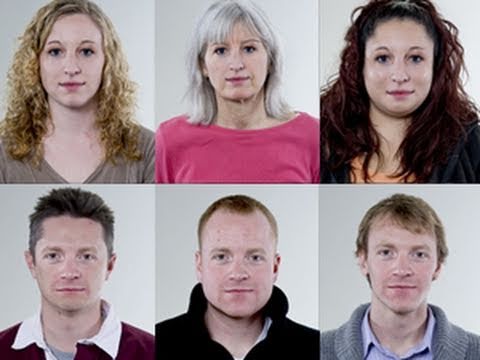If you are my friend, and I have walked past you without speaking, I was probably not ‘blanking’ you – I totally failed to recognise you. You need to know that I suffer from face blindness – or prosopagnosia. 
According to the NHS, ‘Face blindness often affects people from birth and is usually a problem a person has for most or all of their life. It can have a severe impact on everyday life. Many people with prosopagnosia aren’t able to recognise family members, partners or friends. They may cope by using alternative strategies to recognise people, such as remembering the way they walk, or their hairstyle, voice or clothing. But these types of compensation strategies don’t always work, particularly when a person with prosopagnosia meets someone out of context, at a place or time they’re not used to seeing that person.’
I am fortunate in that I have never (as far as I know) failed to recognise a family member or a close friend – but I have often failed to recognise people I have only met a few times. I still cringe when I remember this: my husband and I had dinner with another couple one evening; the husband subsequently turned up at my place of work – and I had not a clue who he was.
Prosopagnosia refers to a severe deficit in recognizing familiar people from their face. The condition can follow neurological damage (typically from stroke or head injury), but many more people (perhaps as many as 1 in 50) have what is commonly referred to as “developmental” or “congenital” prosopagnosia, and these people simply fail to develop normal face processing abilities despite normal intellectual and perceptual functions. People with developmental prosopagnosia seem to have had face recognition difficulties for most of their lives, and perhaps even since birth.
That seems to be the case with me. I have only recently realised that my struggle to recognise people is not because I am stupid and just need to try harder – which is what I have thought all my life. (Imagine the complications of being a pastor’s wife when you have this condition – I would love to be able to go back to all of the church members I have probably offended through the years by not recognising them!)
For me, there are often clusters of people among my acquaintances who look alike. I work in a bible college and I know there are students whom I cannot distinguish between – they probably do have similarities but someone else could tell them apart. I can’t because I can’t see the differences and I don’t know them well enough.
The other side of the coin is that people with prosopagnosia will often speak to people they don’t know because they think they do know them – and yes, I have done that as well.
It’s often funny – and I can usually laugh at myself – but it also explains why social anxiety is often linked with prosopagnosia.
And, if that isn’t enough, there are other aspects to prosopagnosia as well:
‘Prosopagnosia can affect a person’s ability to recognise objects, such as places or cars. Many people also have difficulty navigating. This can involve an inability to process angles or distance, or problems remembering places and landmarks.’ I have often thought that I could get lost in any of the towns we have lived in – now I know why. It’s not just that I have no sense of direction – it’s that I just can’t recognise places I have seen before.
‘Following the plot of films or television programmes can be almost impossible for someone with prosopagnosia because characters aren’t recognisable.’ Just ask my long-suffering husband about that one! If a film has a lot of characters in it, it’s just not worth the bother.
If you think you might have prosopagnosia and would like to do a test, you can go to Trouble with Faces and take the test online.
If you live within travelling distance of Bournemouth University, the Centre for Face Processing Disorders may be able to offer you a formal testing session and the opportunity to take part in their research programme.
How interesting. And how difficult for you. xx
Sent from my iPhone
>